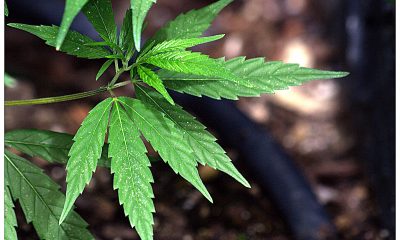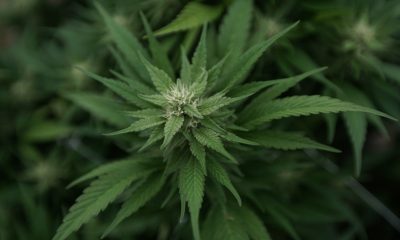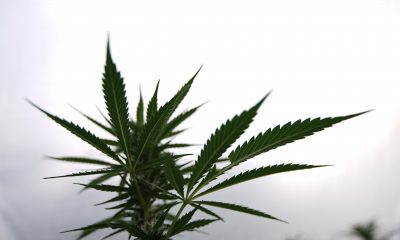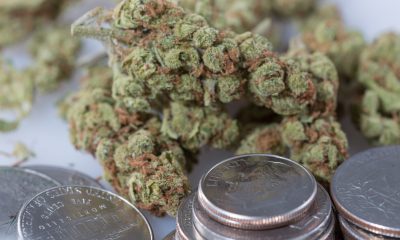Politics
Berkeley, California Officials Approve Psychedelics Decriminalization Resolution Amid Pushback From Reform Advocates
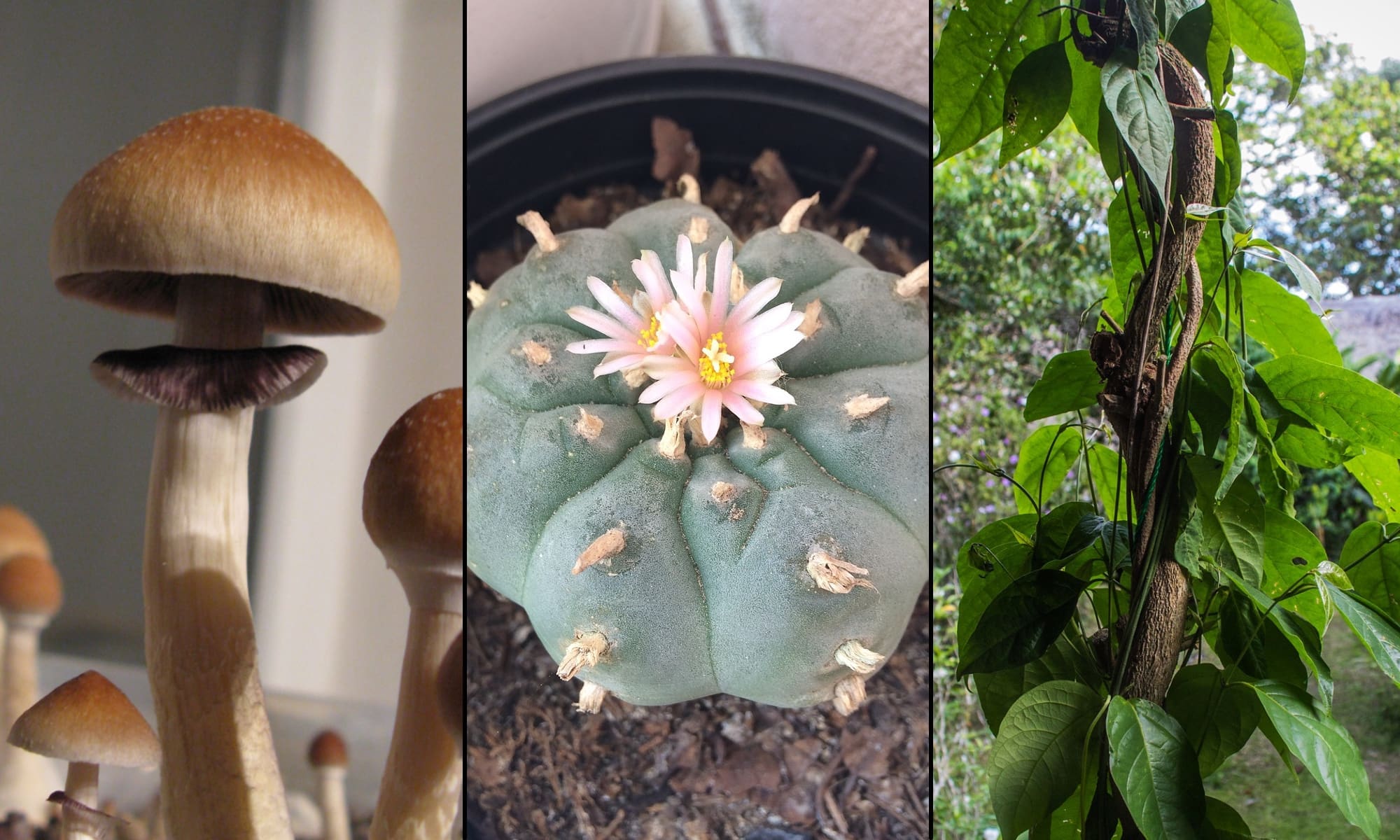
Berkeley, California officials have advanced a proposal to decriminalize certain psychedelics—including synthetics like LSD, rather than focusing more narrowly on entheogenic “natural” plants and fungi as has been the case with similar measures approved in other cities.
The Berkeley Community Health Commission voted unanimously on Tuesday to approve the resolution, though some advocates oppose particular provisions.
The measure, which is uniquely inclusive of LSD while excluding peyote and ibogaine from the list of covered substances, will next go before the City Council for consideration.
At Tuesday’s meeting, Commissioners made some changes to the proposal before passing it—which built on a fundamental reshaping of the legislation from its as-introduced form in 2019—but the latest changes have not yet been published.
One of the major contentions from advocates who pushed for the introduced version concerns the commission’s omission of provisions that would have deprioritized enforcement against gifting and sharing of the psychedelics among adults from the revised measure.
City officials said in an attached report that the decision to leave those components out was related to concerns about inadvertently creating an environment for an illicit, gray market, which the commissioners said has occurred in neighboring Oakland after that city decriminalized psychedelics.
“In these gray markets, we see enterprising entrepreneurs opening commercial operations such as delivery services (advertised with fliers and posters), storefront dispensaries, pop-ups, and outdoor market booths, sometimes asking for ‘suggested donations,’ and sometimes not bothering at all with the pretense that they are merely ‘giving away’ the substances,” the report says.
The resolution as it came before the commission calls on the local government to deprioritize “the enforcement of laws that impose criminal penalties for the possession of psychedelic drugs for personal use (with the exception of Peyote), and laws that impose criminal penalties for the cultivation, processing, and preparation of psychedelic-containing plants and fungi for personal use (with the exception of Peyote).”
It also says that Berkeley should work with external partners to “provide psychedelic harm reduction, education, and support resources to the Berkeley Community.”
A Berkeley City Council committee advanced psychedelics decriminalization in 2019, sending it to the health-focused commission. But while that measure was initially drafted by the Oakland-based Decriminalize Nature, the organization has since voiced opposition to the commission-revised proposal.
“An essential part of this resolution is referring to the City Manager to work with external organizations…to provide accurate, evidence-informed, and widely-accessible psychedelic education, harm reduction, and other support resources to the Berkeley community,” a report on the resolution says. “The goal here is to help individuals make informed and responsible decisions about using psychedelic drugs, and if they choose to use the drugs, to help them do so as safely and beneficially as possible.”
The text of the resolution says that “it shall be the policy of the City of Berkeley that no department, agency, board, commission, officer, or employee of the city, including without limitation, Berkeley Police Department personnel, shall use any city funds or resources to assist in the enforcement of laws imposing criminal penalties for the possession of psychedelic drugs for personal use, or laws imposing criminal penalties for the cultivation, processing, and preparation of psychedelic-drug-containing plants and fungi for personal use.”
That’s similar to past psychedelics reform measures that have advanced in localities across the country, but what makes this proposal different is that it calls for deprioritizing the synthetic psychedelic LSD, which would not technically constitute an “entheogenic” substance.
It also explicitly excludes peyote from the list, which reflects an interest among activists to prevent over-harvesting of a plant-based medicine that is utilized by indigenous communities and is environmentally threatened.
That said, the measure states that local lawmakers should look into future reforms that deprioritize “enforcement of laws imposing criminal penalties for the possession of MDMA, ketamine, ibogaine, and other psychedelic-adjacent compounds for personal use.”
The resolution goes on to say that “the City of Berkeley urges other local jurisdictions to pass proposals that would establish psychedelic education, harm reduction, and support scaffoldings for their communities, create policies for collecting public health data on psychedelic drug use within their communities, and deprioritize the enforcement of laws imposing criminal penalties for the possession of psychedelic drugs (except Peyote) for personal use, and for the cultivation, processing, and preparation of psychedelic-containing plants and fungi (except Peyote) for personal use.”
This local commission vote in Berkeley comes amid a whirlwind of psychedelics policy developments in the U.S., including a statewide vote in Colorado to legalize the possession of certain entheogens this month.
The Berkeley commission’s approval of the reform measure also follows a recent development in adjacent San Francisco, where lawmakers unanimously approved a measure calling for the decriminalization of psychedelics like psilocybin and ayahuasca in September.
Oakland, another city in the region, was one of the first cities in the U.S. to decriminalize psychedelic substances in 2019.
A bill to legalize possession of psychedelics in California was approved by the California Senate over the summer, but it stalled out in the Assembly and was ultimately pulled by the sponsor, Sen. Scott Weiner (D).
Meanwhile, at the congressional level, Sens. Cory Booker (D-NJ) and Rand Paul (R-KY) filed a bill recently that would require the Drug Enforcement Administration (DEA) to transfer breakthrough therapies like psilocybin and MDMA from Schedule I to II, while also removing research barriers for strictly controlled substances.
“This bill reduces these unreasonably burdensome rules and regulations that delay or prevent researchers from studying—and patients from accessing—this entire class of potential medicines,” the senator, who posted a video late last month similarly touting the therapeutic benefits of psychedelics, said.
The bill was introduced in the same week that bipartisan House lawmakers announced the formation of a congressional psychedelics caucus that’s meant to promote the development of novel treatments derived from currently controlled entheogenic substances.
Booker and Paul previously introduced separate legislation in July to clarify that federal “Right to Try” (RTT) laws give seriously ill patients access to Schedule I drugs, including marijuana and certain psychedelics.
Booker said last month that that the intent of that bill was to “open up more avenues to take drugs that are now banned and make them accessible, especially for people that are suffering.”
The earlier bill would make a technical amendment to the text of the existing statute, but the primary purpose is to clarify that RTT policy as signed into law by former President Donald Trump already means that patients with terminal health conditions can obtain and use investigational drugs that have undergone clinical trials, even if they’re Schedule I controlled substances.
Advocates have been encouraged by the gradually growing interest in psychedelics policy and science issues within Congress.
Rep. Earl Blumenauer (D-OR) recently told Marijuana Moment that he “absolutely” sees parallels between the movements to reform laws around psychedelics and marijuana. He also accurately predicted the Colorado voters would approve the psychedelics legalization initiative at the ballot this month.
Also, a pair of bipartisan lawmakers—Reps. Lou Correa (D-CA) and Jack Bergman (R-MI)—announced this month that they’ve formed a first-of-its-kind congressional caucus dedicated to psychedelics therapy.
Congressional Researchers Lay Out Six Key Limitations Of Biden’s Marijuana Pardons
Photo elements courtesy of carlosemmaskype and Apollo.




